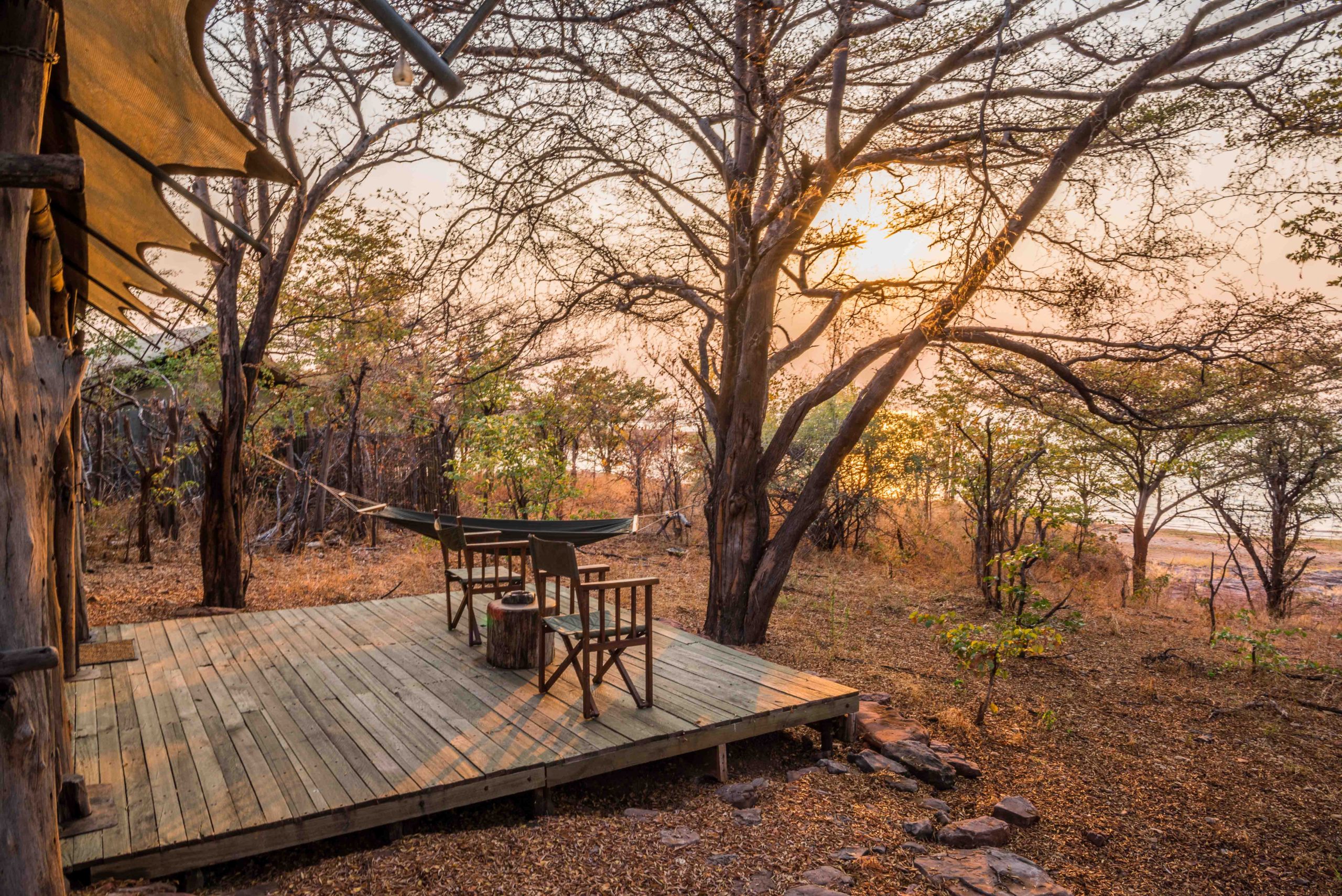What will I experience?
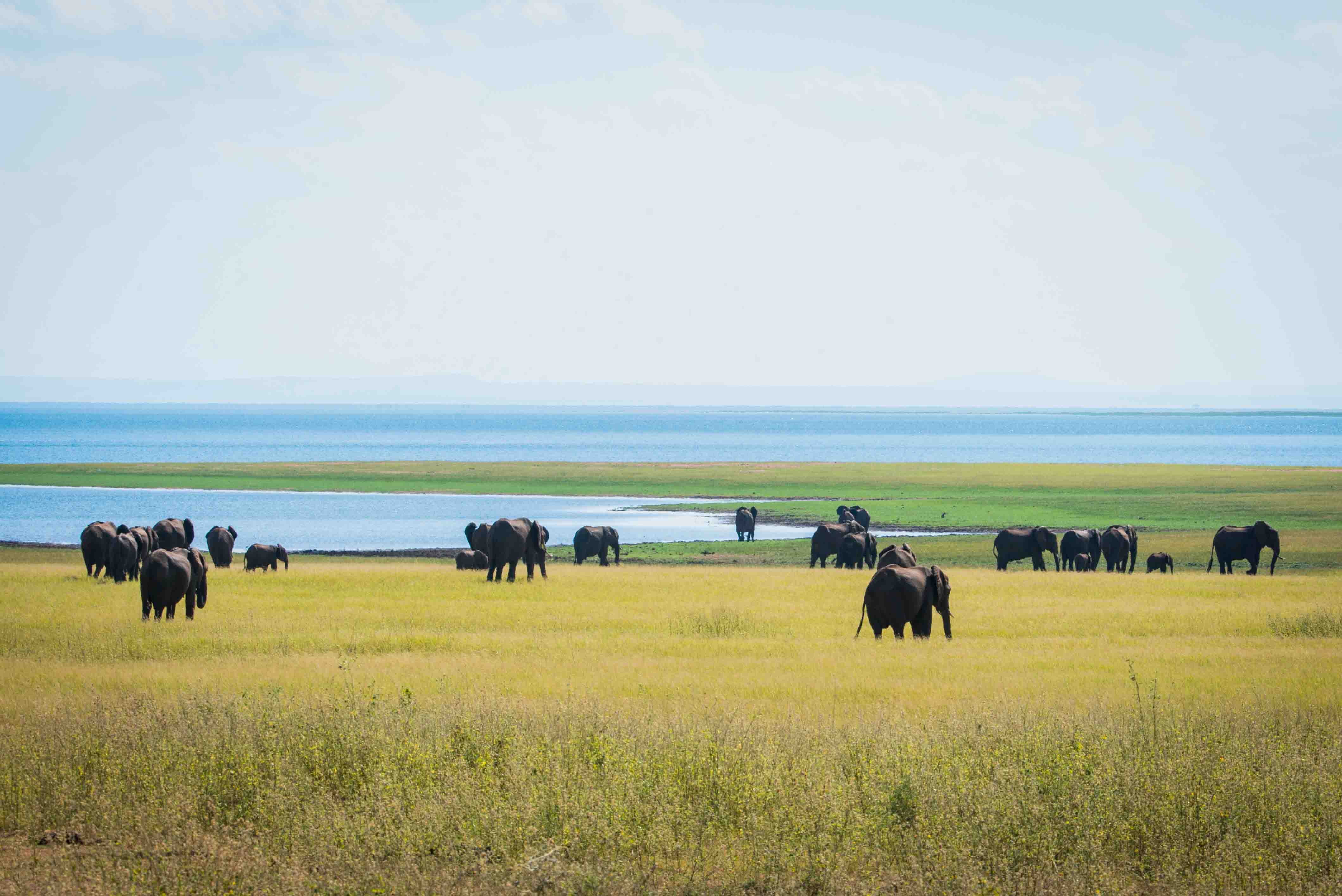
The balance between man and nature is one that has teetered back and forth for all of history. People strive for development, always looking for the next step to progress humankind. The tale of Lake Kariba is no different, for years people wrestled with the idea of taming the mighty Zambezi River, harnessing her power and using it for the development of the region.
The local Batonka tribes believed this would so anger their River God Nyaminyami that he would urge the waters to boil and swallow up the dam wall as it was being built.
This was not to be, through it all Nyaminyami rested, quietly contemplating the future of his once great river lands. Unselfish in his judgement he lent his strength to man and nature alike, his vast power converted to electricity for the region and his waters to the recovery of the nature that remained. Today we can enjoy the balance that has prevailed through it all. Wildlife abounds and the lake has developed its own ecosystem to support the animals that once roamed freely in what is now the lake bed.
Read More
Buffalo and elephants wade into the glistening waters, framed by the branches of petrified trees, their hardened boughs a beautiful reminder of the land that gave way so that new life might grow. Beneath the surface, these trees, once home to a variety of birds and other animals, now provide refuge for tiny Kapenta looking to outwit the fearsome Tigerfish. Their lives spared another day when the Tigerfish finds your hook instead, an awesome fight captured in your memory and photographs before being released to patrol his underwater kingdom once more.
These are not the only creatures to have found their way to Lake Kariba, drawn by the cool mineral rich waters and promise of food. Crocodile add to the fray, lounging at the lake’s edge or dipping into the still waters, disappearing ominously from sight. At night you might hear the grunts of hippo as they emerge under the cover of darkness to feed, a welcome staccato as you look out over the twinkling lights of the night fishermen.
Your mind will drift with the breeze, surrounded by beauty as breathtaking as this, you can feel the energy of the region, whether you believe the legends of Nyaminyami or not. Lake Kariba is a place like no other, a testament to nature’s willingness to forgive the ambitions of humankind.
Tell me more
Lake Kariba is the largest manmade lake, by volume, in the world, construction of the dam wall began on 6 November 1956 and was completed in 1959, and the dam reached full water capacity in 1963. The 36.6 metre (120 feet) high by 24 metre (79 feet) thick wall was built through the pouring of more than a million cubic metres (3.5 million cubic feet) of concrete.
The dam was an initiative of the federation between Northern Rhodesia (now Zambia), Southern Rhodesia (now Zimbabwe) and
Nyasaland (now Malawi) to create a hydroelectric scheme for the region.
Lake Kariba was named for the rock that jutted out of the Zambezi River where it entered the gorge, as legend tells this was the resting place of the great River God Nyaminyami. Vast areas of scrub and forest were strip cleared and burnt, making the lake rich in minerals, the remaining trees became an essential habitat for creatures that later made their way into the lake including fish, crocodile and
hippopotamus. Thousands of animals lost their habitats and over fifty thousand people, mostly of the Batonka tribe were relocated further up the valley, largely against their will. It was ultimately decided that the economic benefits of the lake to the people outweighed the disturbance to the environment and its human and animal inhabitants.
In the past decade conservation efforts have become a priority and the formation of National Parks and Private Concessions have seen an increase in the amount of wildlife in the region as well as the development and investment into local communities through eco-tourism and other initiatives. Lake Kariba is now a magnificent and exciting holiday destination
When should I go?
Although generally hot throughout the year, Kariba is characterised by three distinct seasons that offer quite different experiences, which will help you to determine when is most suitable for the activities you have planned for your visit.
Karibas hot dry season runs from August until October and temperatures can reach upwards of 40 degrees Celsius (104 degrees Fahrenheit). During August and September winds pick up and water on the lake tends to be quite choppy. You can expect the best game viewing conditions from August to October as there is great visibility owing to the dryness of the bush, and with a scarcity of water and grazing available, animals gather near the lake to take advantage of its vast water supply and lush grass. Fishing for Tigerfish is also considered to be at its best during this time, with October being the most prolific month.
From November until April the region is characterised by hot, humid weather with afternoon thunderstorms. During this time if the inter-tropical convergence zone arrives, you can expect up to three weeks of continuous rain. Watching the huge storm cloud formations roll in over the lake is a
spectacular sight. The bush rapidly transforms to lush greenery when the rains arrive, flora and fauna thrive and there are a lot of baby animals born during this period. Birding is an annual activity at the lake, but during this period a number of migratory species arrive which adds more variety, and birding is considered to be at its best. The heavy rains can cause the waters of the lake to become
muddy which can have a negative effect on fishing.
Cool dry weather prevails from May until July, day time temperatures are warm while cool night time temperatures don’t generally drop below 13 degrees Celsius (55 degrees Fahrenheit). The region experiences beautiful blue skies with very low chances of rain. Wildlife viewing opportunities start to increase as the dry season progresses with June and July being the best months to see game
and birdlife during this period.
Gallery
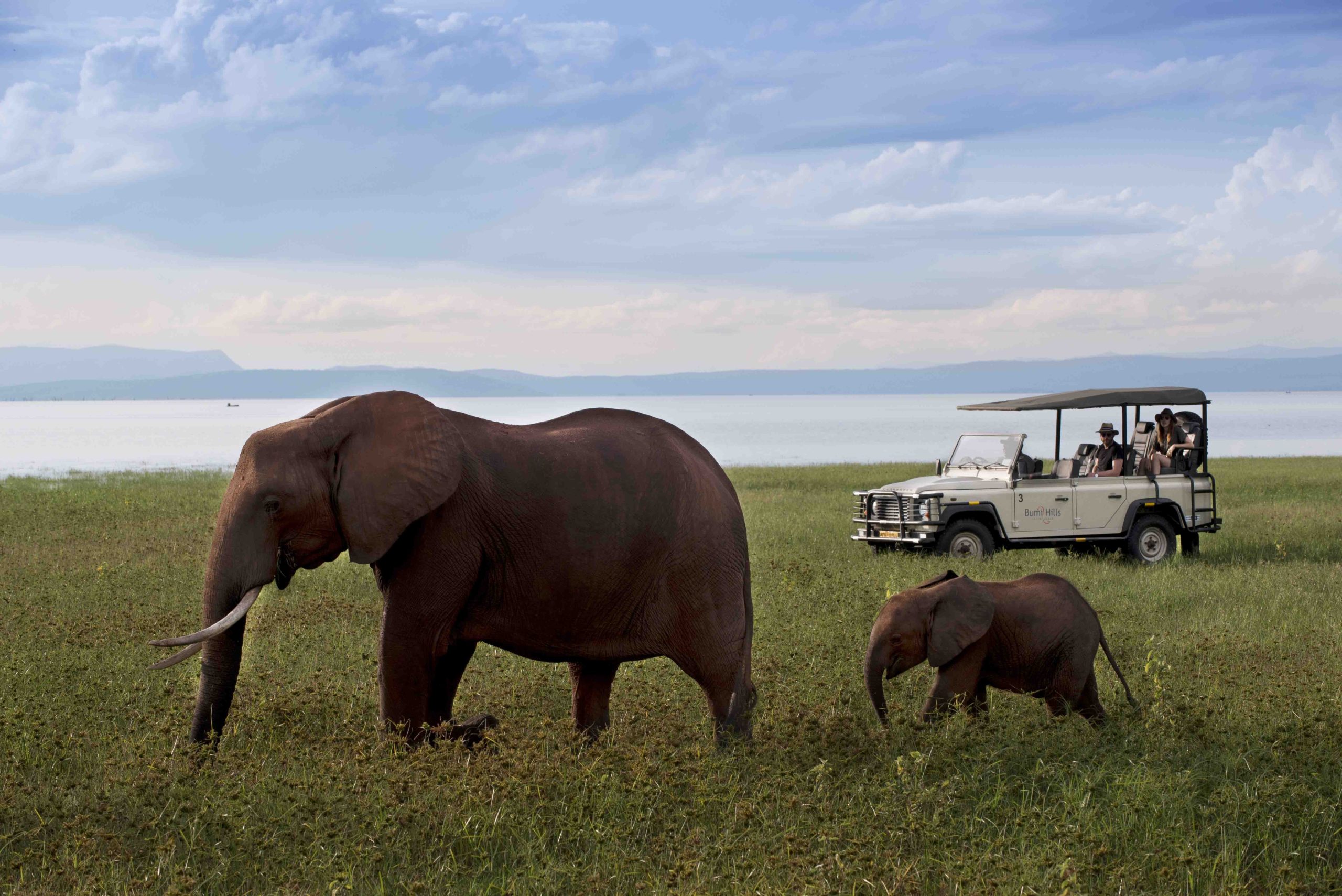
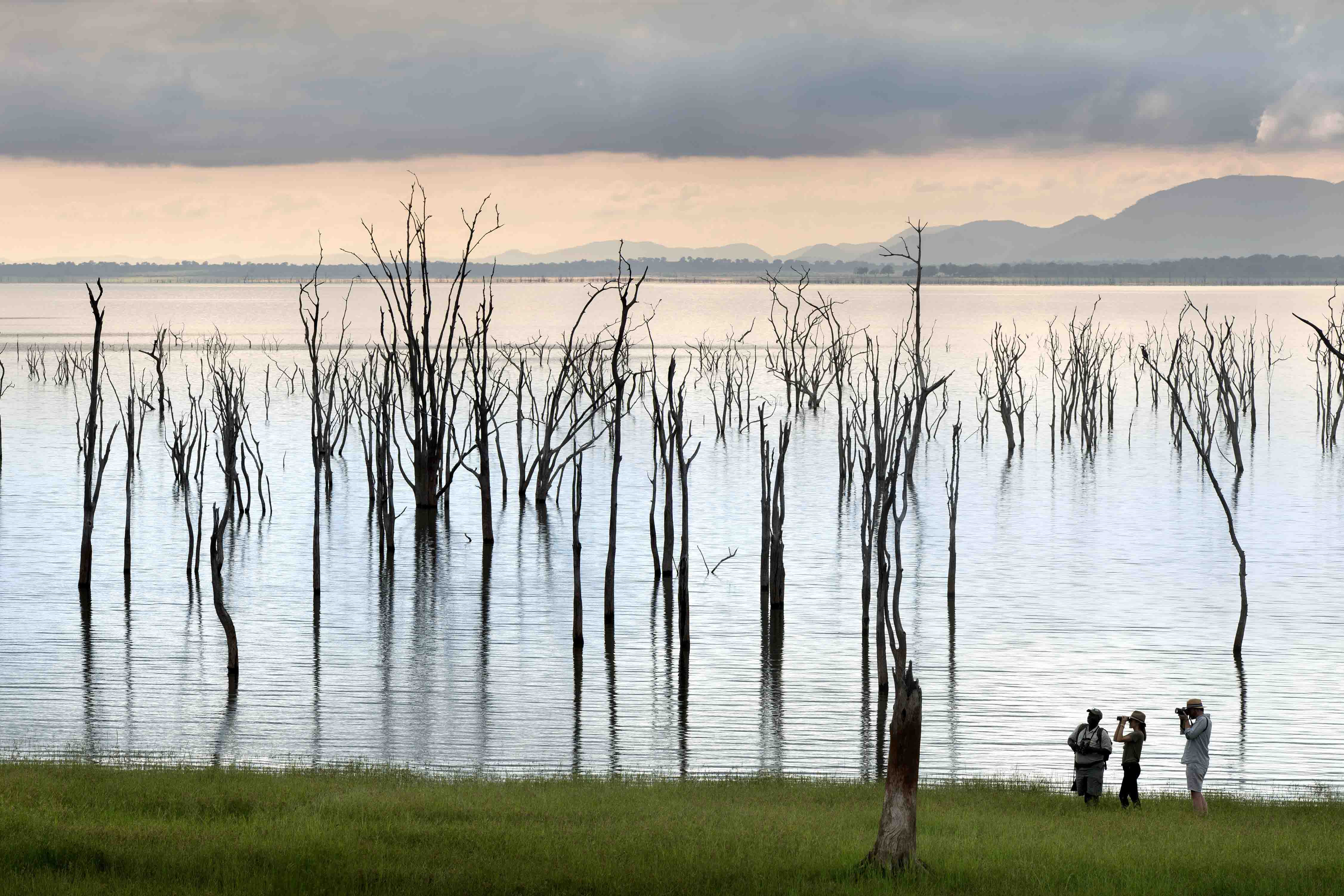
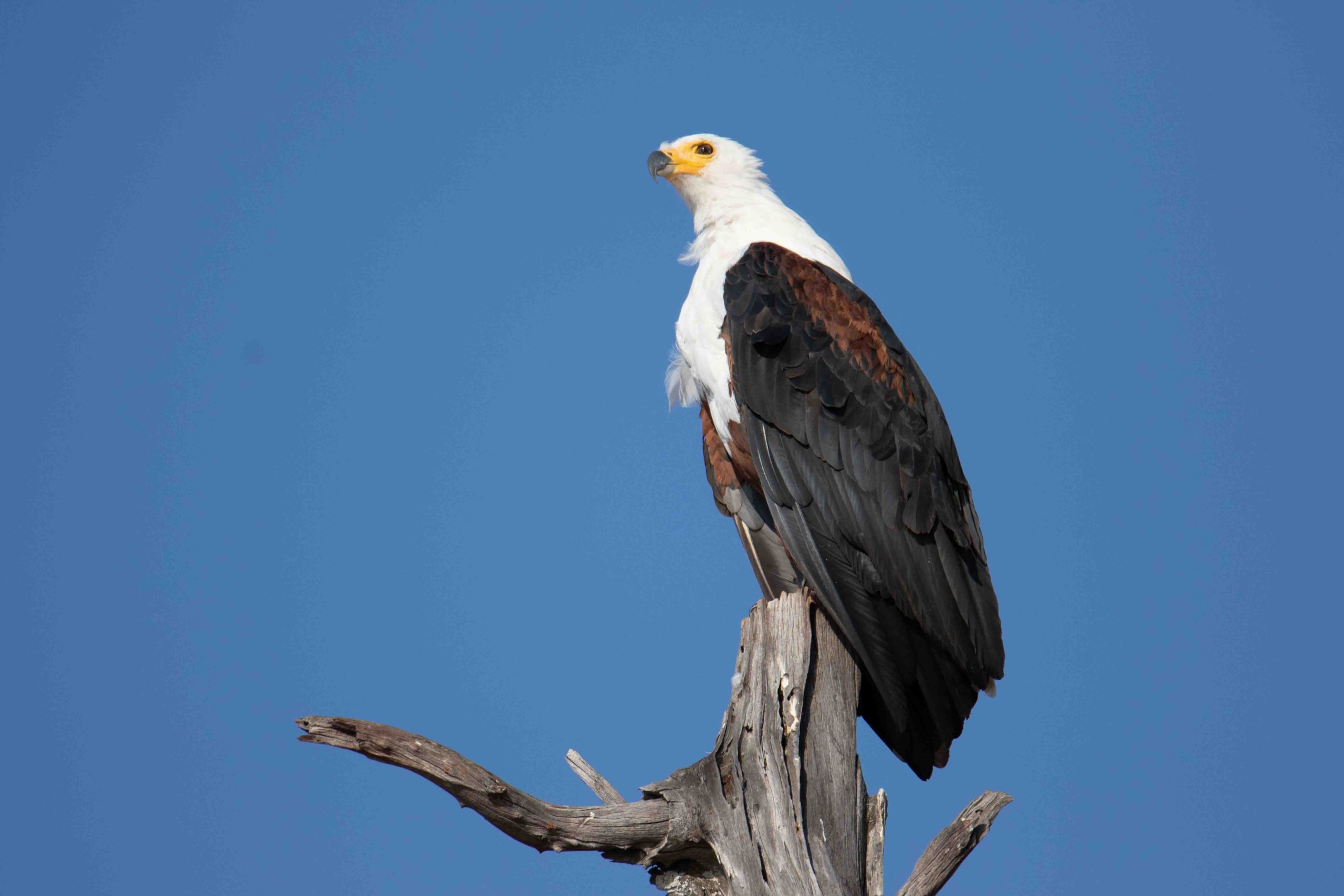
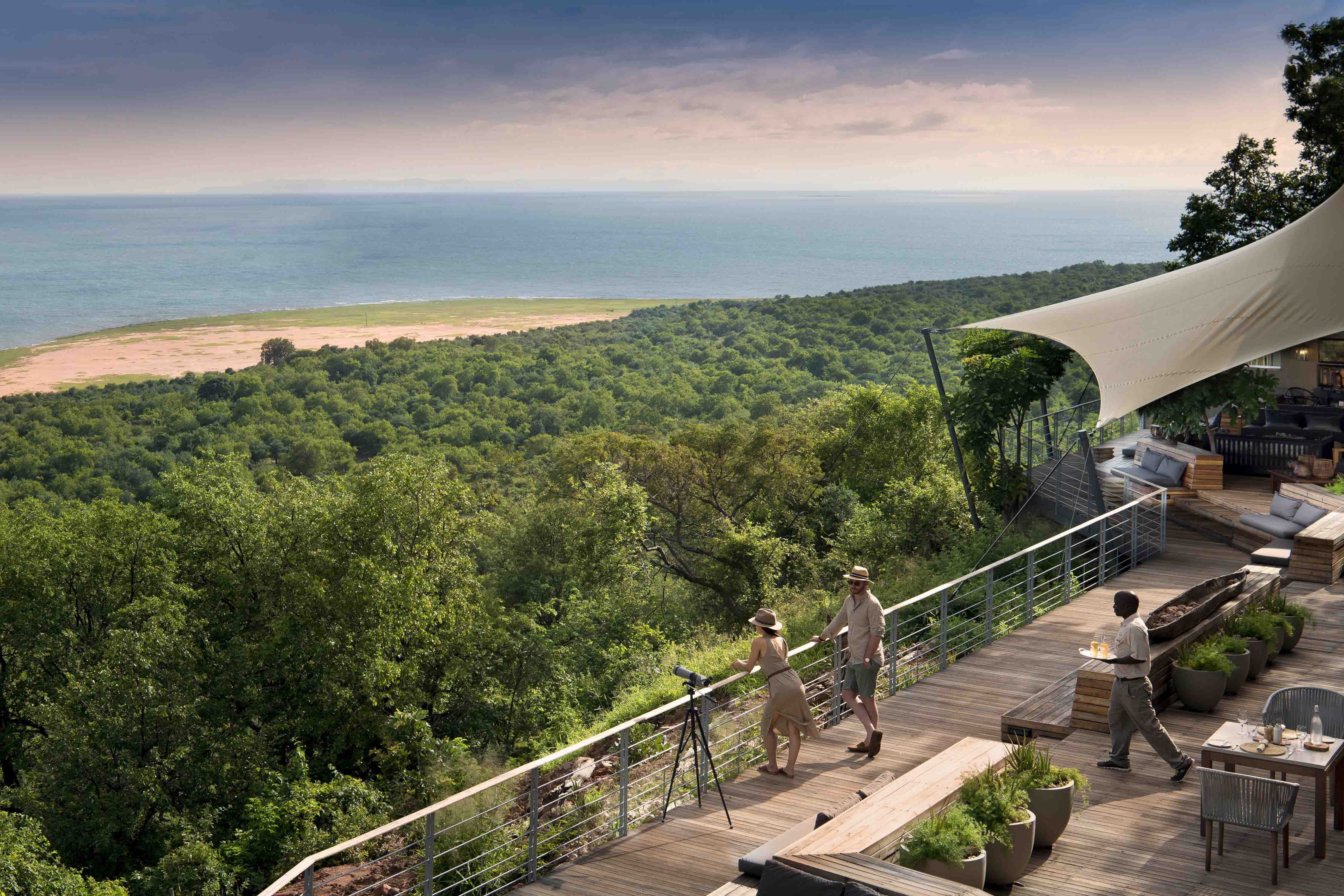
CAMPS
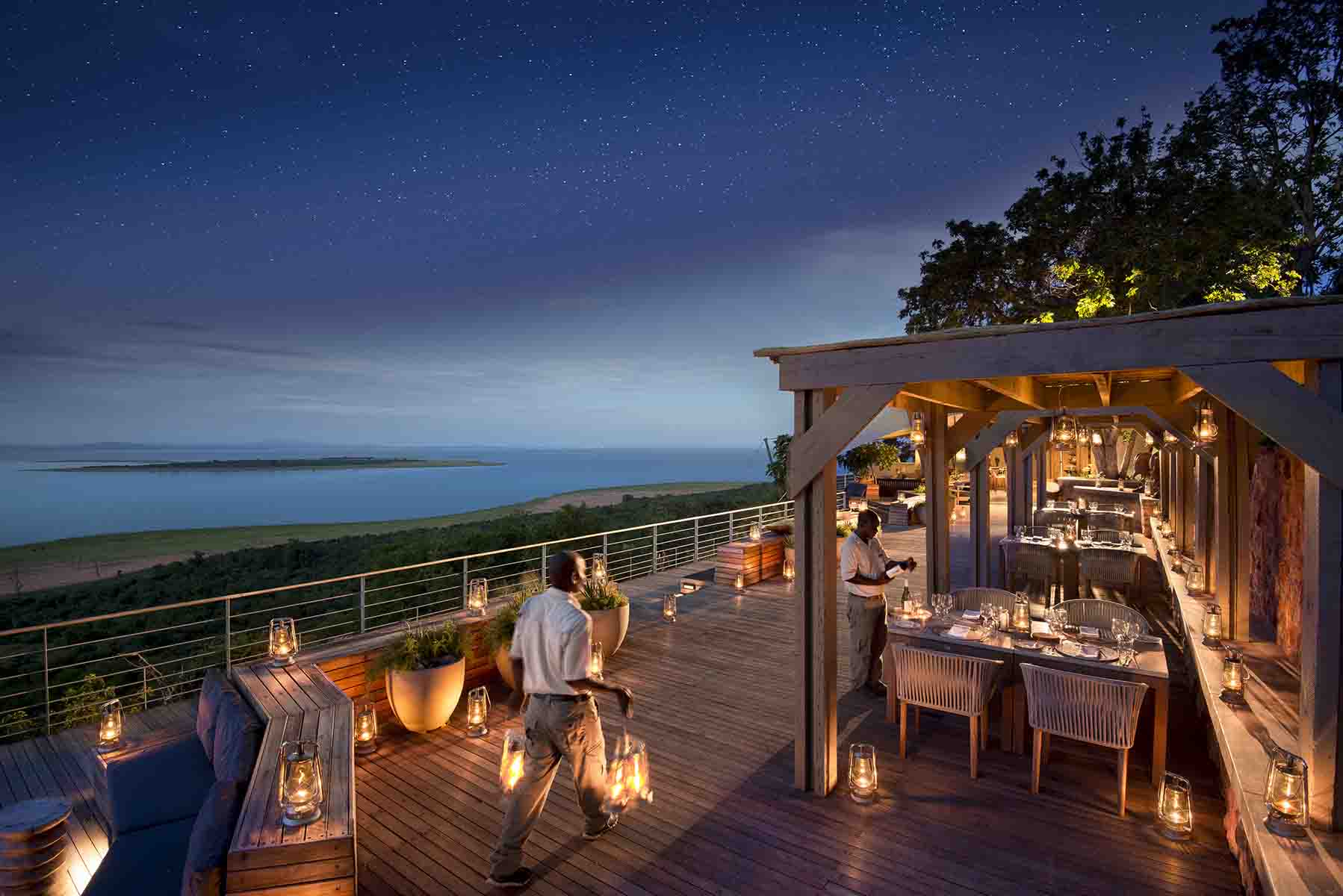
Bumi Hills Safari Lodge
